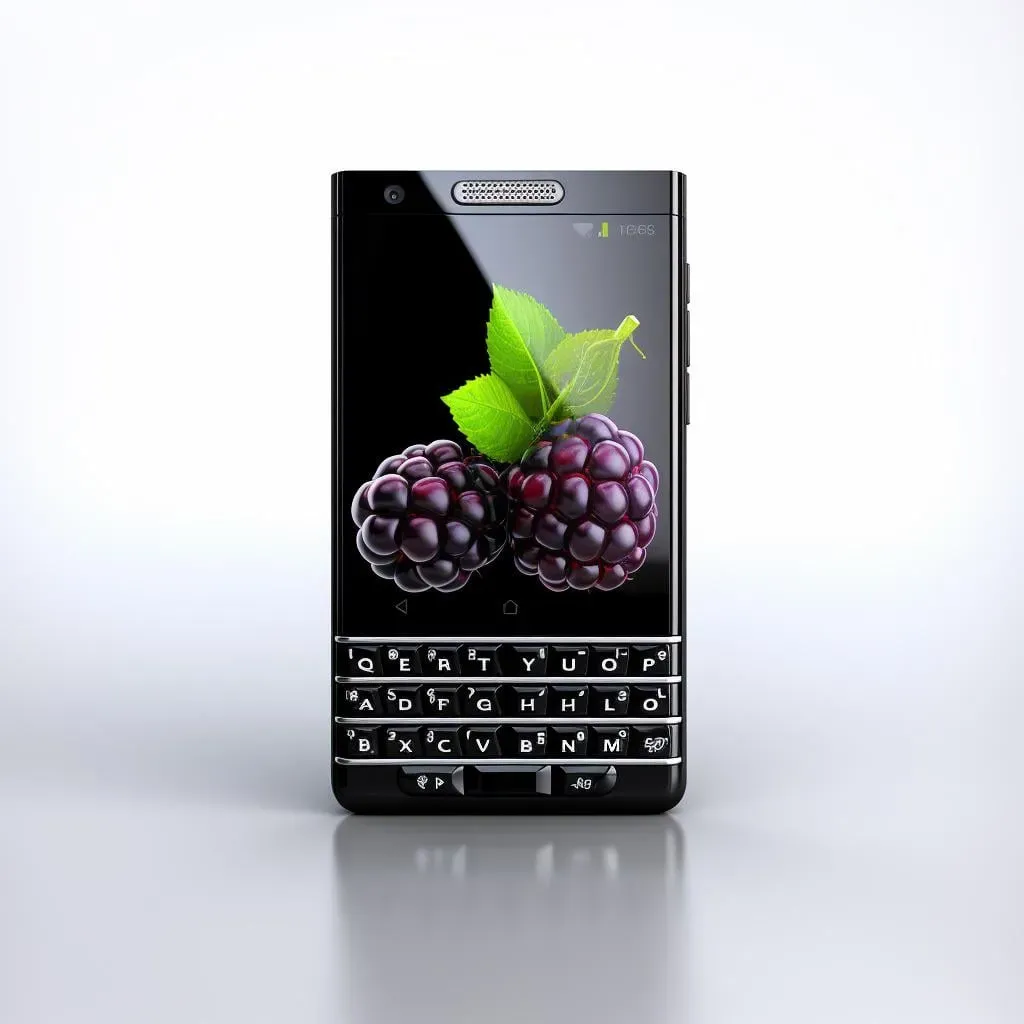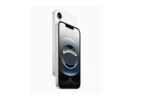BlackBerry keyboard patents have played a pivotal role in shaping the landscape of mobile phone innovations since their inception. Filed in 2005, these patents have allowed BlackBerry smartphones to become synonymous with productivity and efficiency, especially in the business world. As the first smartphones to feature tactile keyboards, BlackBerry devices garnered a loyal following, making them a staple among professionals and trendsetters alike. The legacy of BlackBerry keyboards is not just a chapter in BlackBerry history; it represents a significant moment in the evolution of keyboard mobile devices. With the expiration of these patents, the door now opens for new players to explore innovative designs, potentially revitalizing interest in keyboard-equipped phones once more.
The expiration of BlackBerry’s iconic keyboard patents marks the end of an era for tactile input methods in mobile technology. Known for their unique design, these patents have defined a generation of smartphones that prioritized user experience through physical keyboards. With the rise of touch screens dominating the market, the potential resurgence of keyboard-equipped mobile devices raises questions about consumer preferences and tech trends. Reflecting on BlackBerry’s impact on mobile communication, we can appreciate how the company’s innovations have left a lasting imprint on the industry. As manufacturers now explore the possibilities without the constraints of these patents, we may witness a renaissance of keyboard-centric devices that pay homage to the BlackBerry legacy.
The Legacy of BlackBerry Smartphones
BlackBerry smartphones, launched in the early 2000s, redefined what it meant to be a mobile device. With their unique blend of secure messaging, email capabilities, and innovative keyboard designs, they quickly became the go-to choice for business professionals and tech enthusiasts alike. The BlackBerry legacy is not just about the devices; it’s about the cultural impact they had during a pivotal time in mobile technology. Users appreciated the physical keyboard’s tactile feedback, which distinguished BlackBerry from its competitors, particularly as touchscreen technology was just beginning to gain traction.
As we look back on BlackBerry’s history, it’s clear that their contribution to mobile phone innovations extends beyond just hardware. They set the stage for future developments by prioritizing security and user experience. While many may remember the sleek design and the satisfying click of the keyboard, it was the overall functionality that won users over. This combination of features led to a strong sense of loyalty among customers, making BlackBerry a household name in mobile technology.
The Impact of BlackBerry Keyboard Patents on Mobile Devices
The expiration of BlackBerry keyboard patents marks a pivotal moment for the smartphone industry. Having held exclusive rights to their innovative keyboard designs since 2005, BlackBerry’s patents have influenced the development of many mobile phone innovations. With these patents expiring, manufacturers can now freely incorporate physical keyboards into their devices, which could lead to a resurgence of keyboard mobile devices in the market. This shift can potentially spark creativity among tech companies, pushing them to explore new designs and features that cater to a niche audience.
However, the current smartphone landscape is dominated by touchscreens, which have become the standard for most users. Despite this, there is a growing demand for variety and personalization in technology, and BlackBerry’s legacy could inspire a new wave of low-end and experimental smartphones featuring keyboards. While mainstream manufacturers may still lean towards touchscreen interfaces, companies like Unihertz have already started capitalizing on the nostalgia associated with BlackBerry’s keyboard functionality. If these experimental devices gain traction, we might witness a renaissance of keyboard-centric smartphones.
BlackBerry’s Role in Shaping Mobile Technology
The story of BlackBerry is not just about a series of successful devices; it is a narrative of innovation and adaptation in the face of rapid technological evolution. Founded in 1999, BlackBerry quickly became synonymous with mobile technology, particularly in the corporate sector. Their commitment to developing secure, reliable communication tools made them a staple for businesses, as their devices offered unparalleled functionality for email and messaging. This focus on security laid the groundwork for future smartphone developments, influencing how manufacturers approach mobile security today.
As we reflect on BlackBerry’s role in shaping mobile technology, it’s important to acknowledge how their designs and features have influenced competitors. The introduction of the physical keyboard was a game-changer, offering users a different experience compared to the burgeoning touchscreen alternatives. Even as BlackBerry’s mobile division ceased operations in 2016, the legacy of their innovations continues to be felt, with many brands and devices drawing inspiration from the past. BlackBerry’s commitment to excellence in mobile technology serves as a reminder of the importance of user-centric design in the evolution of smartphones.
Nostalgia for BlackBerry’s Iconic Keyboards
Nostalgia plays a significant role in how we perceive technology, particularly when it comes to iconic devices like the BlackBerry smartphone. For many, the distinct sound of clicking keys and the compact design of the BlackBerry keyboard evoke memories of a time when these devices were essential for communication and productivity. This fondness for the past highlights the emotional connection users have with their devices, as well as the impact BlackBerry had on their daily lives. The keyboard was not just a feature; it was a symbol of professionalism and connectivity in an increasingly digital world.
As technology continues to evolve, the unique charm of BlackBerry’s keyboards serves as a reminder of the diversity in mobile design. While touchscreens dominate the market today, there remains a niche audience that appreciates the tactile feedback and physical presence of a keyboard. This nostalgia could foster interest in new products that incorporate similar designs, as users seek to relive the experiences associated with their favorite BlackBerry devices. By acknowledging this sentiment, brands can tap into a market that yearns for a blend of modern technology and the beloved features of past innovations.
The Future of Keyboards in Smartphones
With BlackBerry’s keyboard patents now expired, the future of keyboards in smartphones is a topic of intrigue and speculation. As manufacturers gain the freedom to experiment with keyboard designs, we may witness an innovative resurgence in keyboard mobile devices. While the touchscreen has become the dominant interface, the expiration of these patents could encourage brands to design unique devices that appeal to users who miss the tactile experience of a physical keyboard. This could lead to the development of hybrid devices that combine traditional keyboard layouts with modern touchscreen technology.
Despite the current trend favoring touchscreens, the enduring popularity of BlackBerry keyboards indicates a potential market for devices that offer a physical typing experience. Companies like Unihertz have already ventured into this space, producing BlackBerry-like devices that cater to a specific audience. If these experimental smartphones find success, it could signal a shift in consumer preferences, prompting leading manufacturers to reconsider the role of keyboards in future designs. The next wave of mobile innovations might just surprise us by reviving the charm of BlackBerry’s iconic keyboards.
BlackBerry’s Influence on Modern Smartphones
BlackBerry’s influence on modern smartphones is undeniable, with its pioneering features and design elements continuing to shape the mobile landscape. The company’s early focus on secure communication paved the way for the robust security protocols we see in contemporary smartphones. As the industry has evolved, many of the principles established by BlackBerry have been integrated into today’s devices, particularly the emphasis on user privacy and data protection. This foundational work has been crucial in an era where cybersecurity is paramount.
Moreover, BlackBerry’s approach to functionality and multitasking has left a lasting impression on smartphone design. Features such as physical keyboards and efficient email management were revolutionary at the time and have influenced how modern smartphones cater to professional environments. As we witness the ongoing evolution of mobile technology, it’s essential to recognize how BlackBerry’s legacy continues to inspire and inform current innovations, ensuring that the company’s spirit lives on in the devices we use today.
Revisiting BlackBerry’s Historical Significance
Revisiting BlackBerry’s historical significance offers insight into how mobile technology has transformed over the years. From its inception in 1999 to its meteoric rise in the early 2000s, BlackBerry was at the forefront of mobile innovation, setting trends that would influence the entire industry. The introduction of their smartphones revolutionized the way people communicated, and their emphasis on secure messaging and email functionality became a blueprint for future devices. As we reflect on this era, it becomes clear that BlackBerry played a crucial role in shaping consumer expectations for mobile technology.
Today, as we revisit the timeline of BlackBerry’s achievements, we see a brand that exemplified the intersection of technology and lifestyle. The nostalgia surrounding BlackBerry devices highlights not only their technological advancements but also their cultural impact during their peak. Whether it was the allure of the physical keyboard or the reputation for unmatched security, BlackBerry’s contributions to the mobile phone market have left an indelible mark. This historical significance is essential for understanding the trajectory of mobile technology and the legacy that continues to influence today’s innovations.
The Market for Keyboard-Enabled Smartphones
The market for keyboard-enabled smartphones is a niche segment that has seen limited options in recent years, especially with the rise of touchscreens as the dominant interface. However, with the expiration of BlackBerry’s keyboard patents, the potential for innovation in this area is significant. Companies that have already explored this market, like Unihertz, demonstrate that there is still consumer interest in devices that offer physical keyboards. As these brands continue to develop their offerings, they could help reignite interest in keyboard mobile devices.
Looking ahead, there is an opportunity for brands to cater to a demographic that values the functionality and nostalgia associated with BlackBerry-style keyboards. The success of these devices could depend on how well they balance the benefits of physical typing with modern smartphone features such as apps, touchscreens, and connectivity. If executed correctly, the reintroduction of keyboard-enabled smartphones could carve out a new niche in the mobile market, appealing to both loyal BlackBerry fans and new users seeking a unique mobile experience.
Celebrating BlackBerry’s Innovative Spirit
Celebrating BlackBerry’s innovative spirit is essential in recognizing the company’s impact on mobile technology. From its inception, BlackBerry exemplified the drive for excellence in design and functionality, prioritizing user experience in a rapidly changing tech landscape. The brand’s focus on creating devices that combined communication capabilities with security features set a standard that many competitors sought to emulate. This innovative spirit is a testament to BlackBerry’s commitment to pushing boundaries and redefining what a smartphone could be.
As we honor BlackBerry’s legacy, it’s vital to acknowledge the ongoing influence the brand has on modern technology. The principles of innovation and user-centered design that BlackBerry championed continue to resonate within the industry today. By celebrating this spirit, we not only recognize the achievements of the past but also inspire future generations of technologists to prioritize creativity and functionality in their designs. BlackBerry’s story serves as a powerful reminder of how innovation can shape our world and the importance of maintaining that ethos in the ever-evolving tech landscape.
Frequently Asked Questions
What is the significance of BlackBerry keyboard patents in mobile phone innovations?
BlackBerry keyboard patents are crucial in the realm of mobile phone innovations as they represent some of the earliest advancements in smartphone design. Filed in 2005, these patents contributed to the popularity of BlackBerry smartphones in the early 2000s, known for their signature physical keyboards that enhanced user experience and productivity.
How did BlackBerry’s keyboard patents influence the history of BlackBerry smartphones?
The keyboard patents played a pivotal role in shaping the history of BlackBerry smartphones, allowing the brand to dominate the mobile market by offering devices that catered to business professionals and tech-savvy users. The tactile feedback of BlackBerry keyboards became a defining feature that set these smartphones apart from competitors, particularly during the rise of touch-screen devices.
Are BlackBerry keyboard patents still relevant in today’s smartphone market?
While the BlackBerry keyboard patents expired recently, their relevance in today’s smartphone market is limited. The trend has shifted largely towards touch-screen technology, which remains dominant. However, the nostalgic appeal of BlackBerry’s keyboard-centric devices may inspire niche markets or low-end smartphones that incorporate similar features.
What impact did BlackBerry’s keyboard legacy have on modern mobile devices?
BlackBerry’s keyboard legacy has had a lasting impact on modern mobile devices by establishing a benchmark for physical keyboards in smartphones. Although most current devices favor touch screens, the legacy of BlackBerry keyboards influences some manufacturers, like Unihertz, who explore the revival of keyboard mobile devices in niche markets.
Can we expect new keyboard mobile devices after BlackBerry’s keyboard patents expiration?
Following the expiration of BlackBerry’s keyboard patents, we may see an emergence of new keyboard mobile devices, especially from brands looking to innovate in a niche market. However, the widespread popularity of touch-screen smartphones makes it unlikely that these devices will significantly alter the mainstream mobile phone landscape.
How did BlackBerry’s design choices in keyboards affect its legacy in mobile phone history?
BlackBerry’s design choices, particularly the integration of physical keyboards, solidified its legacy in mobile phone history as a brand synonymous with productivity and professionalism. This distinctive feature attracted a loyal customer base and reinforced BlackBerry’s status as a pioneer in the smartphone industry, influencing future designs and user expectations.
What are some other companies influenced by BlackBerry’s keyboard patents?
Several companies have drawn inspiration from BlackBerry’s keyboard patents, particularly those in the niche market for keyboard mobile devices. Brands like Unihertz have created BlackBerry-like smartphones, catering to users who appreciate physical keyboards, thereby keeping the spirit of BlackBerry’s innovations alive in a modern context.
| Key Point | Details |
|---|---|
| Patent Expiration | BlackBerry’s keyboard patent expires today, filed in 2005. |
| BlackBerry’s Popularity | In the early 2000s, BlackBerry dominated the smartphone market with its unique keyboard design. |
| Impact of Touchscreens | Despite the patent expiration, touchscreens remain the preferred choice for most consumers. |
| Nostalgia and Legacy | BlackBerry evokes nostalgia akin to devices like Walkmans and iPods, representing a bygone era of mobile tech. |
| Future of Keyboards in Smartphones | There could be an increase in low-end smartphones with keyboards, but significant market impact is unlikely. |
| Canadian Pride | As a Canadian, there’s pride in BlackBerry’s history as a leading tech innovator. |
Summary
BlackBerry keyboard patents have officially expired, marking a significant moment in mobile technology history. BlackBerry once reigned supreme in the smartphone market with its iconic keyboards, offering users a unique typing experience that was unmatched at the time. However, as mobile technology evolved, touchscreen devices became the norm, overshadowing the once-popular keyboards. While the expiration of BlackBerry’s patents may open doors for new devices featuring keyboards, the demand for such phones remains uncertain in a touchscreen-dominated market. Nonetheless, BlackBerry’s legacy continues to resonate, reminding us of a time when it was the epitome of mobile communication.








